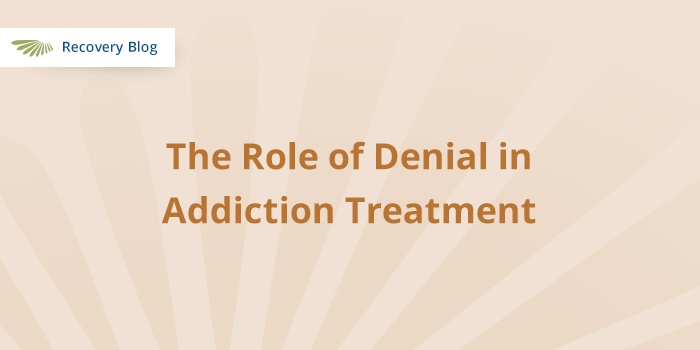What do Substance Misuse and Binge Eating Disorder have in common?
Many people who struggle with addition to alcohol or drugs also have difficulty controlling the...

Denial. Most issues in life start with some sort of denial and if you want to make a change in your life you need to face the issue and stop denying that it is there. This is true for dealing with trauma, for substance use disorder and for any change you want to make in your life.
When it comes to treatment for substance use disorder, denial is a significant contributor to your success (or lack thereof).
Denial is a well-known common defense mechanism and is a common first reaction when confronted with the truth, especial when it comes to substance use disorder.
Most people who are struggling with substance use get stuck in a phase where they try to sincerely convince themselves or their loved ones that substance use is not negatively impacting their lives, or at least it’s just an insignificant and temporary issue.
This is especially true for high-functioning alcoholics who are seemingly able to balance their day to day responsibilities. Because they are not consistently faltering in their responsibilities to their careers or families, they do not feel that they have a problem that needs to be addressed.
Part of addiction denial is the belief that you’re “not as bad as” someone else. You feel as though you’ve got it under control. You feel as if you don’t need professional help, just some time to get over it. Admitting that alcohol use has more control over you than you have over it is hard, but it’s an important first step.
Denial is often the greatest obstacle in addiction treatment as it prevents you from fully committing to recovery. If you are entering addiction treatment to appease others, and not because you believe that you need to change things in your own life, you are still in denial of your substance use disorder.
Loved ones often move past the denial stage quicker and are focused on treatment sooner than the afflicted individual, which is why it is sometimes said that those suffering from addiction are often the last ones to find out that they truly do have a substance use disorder.
People struggling with addiction go through various stages before they are ready to commit to receive treatment and those stages vary from person to person.
It is important to highlight that once someone decides to seek treatment on their own that denial has been overcome to some degree. If you have a loved one or colleague who needs professional help but they are in denial of it, forcing them into treatment is not always the best option.
The first step to recovery is to get someone to understand that they might have a problem. Then they may become open to the idea of discussing their situation with a professional. Once there has been a shift from denial to acceptance there is a stronger likelihood of being open to the recovery process.
Acceptance does not only refer to acknowledging that there is a problem but also accepting that it needs to be acted on. At this stage you start on the journey to sobriety.
Breaking through denial is not an easy task. It can be hard to try and convince a loved that they are endangering their health, relationships, career, and their future. Our team of professional addiction treatment experts can help you move past denial, into acceptance and to get professional help. Contact us today for a no obligations consultation about how we can help.
Many people who struggle with addition to alcohol or drugs also have difficulty controlling the...
Mental health and substance use disorders go hand in hand. At times it is difficult to separate one...
How Did I Get Here?
When you or a loved one is suffering from a substance use disorder, often you...